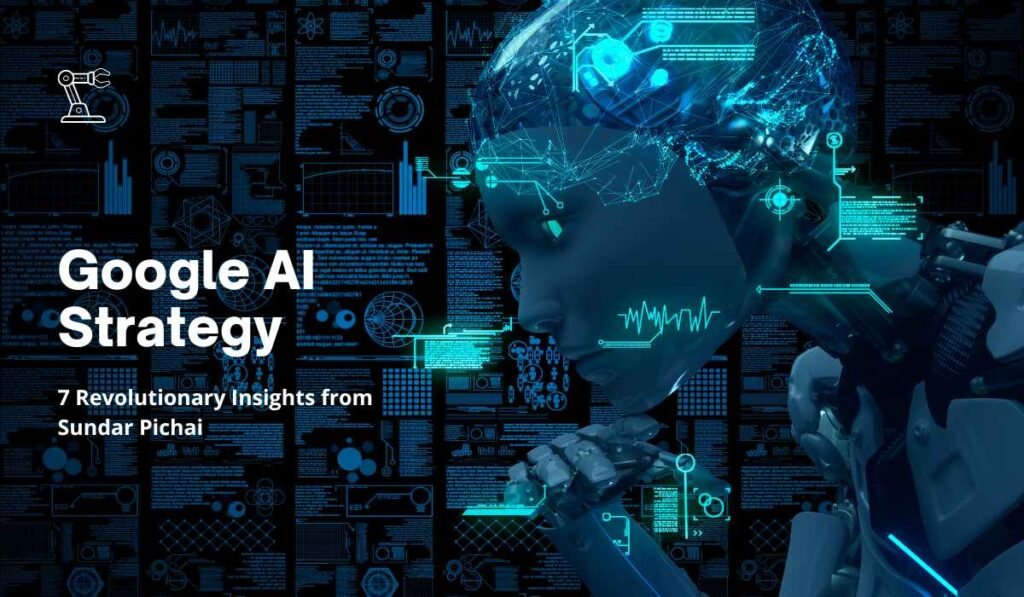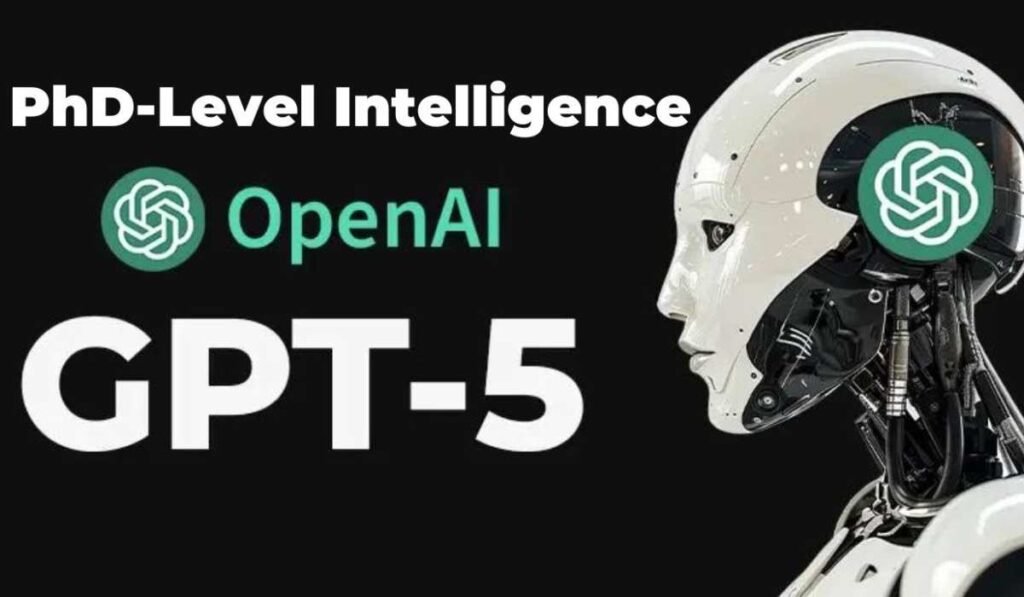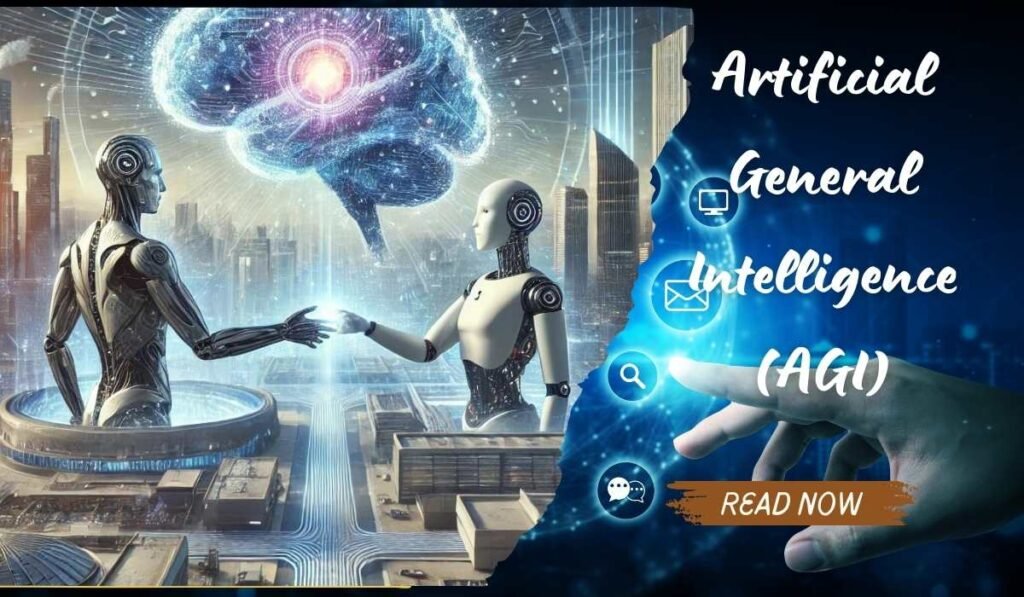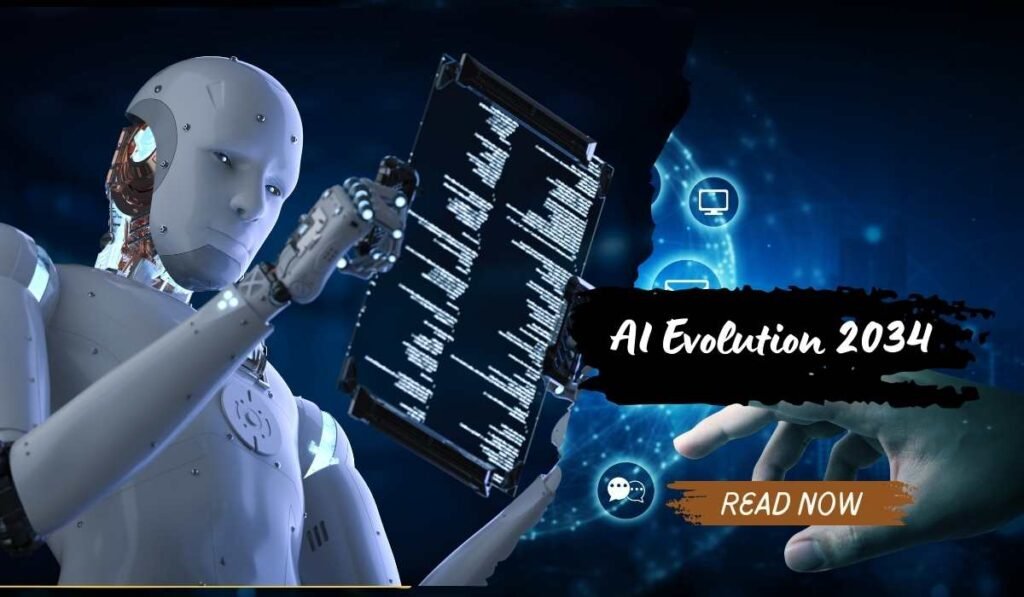Google AI Strategy: Sundar Pichai’s Vision for the Future of Search and Innovation
The Google AI strategy is reshaping the technological landscape, positioning the tech giant at the forefront of the artificial intelligence revolution. In a revealing interview, Sundar Pichai, CEO of Google and Alphabet, offers unprecedented insights into the Google AI strategy and its far-reaching implications for the future of search, innovation, and global technology trends.
The Plex: Heart of Google’s Innovation
The interview takes place in the Plex, Google’s headquarters, where the company’s journey began and continues to unfold. Pichai, celebrating his 20th anniversary with the company, reflects on the transformative impact Google has had on how we live, work, and communicate.
Key Points:
- Google has been the front door of the internet for over 20 years
- The company is now adapting to a world with many “doors” to information
- Pichai’s 20-year tenure at Google coincides with significant personal and professional milestones
Sundar Pichai: The Architect of Google’s AI-First Approach
Sundar Pichai’s leadership has been instrumental in shaping Google AI strategy. As CEO, he has been carefully crafting a strategy that infuses AI into every corner of the business.
Pichai’s AI-First Initiative:
- Launched in 2016 as one of his first actions as CEO
- Aims to integrate AI across all Google products and services
- Positions the company for what Pichai calls “an extraordinary decade of innovation”
The AI Revolution: Google’s Perspective
The recent frenzy around AI, particularly following the launch of ChatGPT, has challenged Google’s position in the tech world. However, Pichai sees this as part of a larger, long-term strategy.
Pichai’s View on the AI Frenzy:
- Acknowledges the current excitement and frenzy in the AI field
- Believes the current AI revolution is “bigger” than previous tech cycles
- Emphasizes that Google is prepared for this shift
Google’s AI Innovations: From Search to Personal Assistance
Pichai discusses how AI is already integrated into various Google products, enhancing user experiences in both professional and personal contexts.
AI Applications at Google:
- Google Lens for homework assistance
- AI-enhanced search capabilities
- Potential for more advanced personal AI assistants
The Evolution of Search in the AI Era
As AI capabilities grow, the nature of search is changing. Pichai addresses concerns about the future of Google Search and its business model in light of these changes.
Key Points on the Future of Search:
- Google will continue to provide links alongside AI-generated answers
- The company is experimenting with ads in AI-enhanced search results
- Pichai believes the fundamental principles of search will hold true in the AI era
Challenges and Controversies in AI Development
The interview touches on recent controversies surrounding AI-generated content and biases in AI models.
Addressing AI Challenges:
- Pichai acknowledges issues with Gemini’s image generation
- Emphasizes the need for responsible AI development
- Discusses strategies for dealing with AI-generated misinformation in search results
Google’s Competitive Edge in the AI Race
Despite perceived setbacks, Pichai remains confident in Google’s position in the AI field.
Google’s AI Advantages:
- Long-term investment in AI research and development
- Ownership of foundational AI technologies (e.g., transformers)
- Integration of AI across a wide range of products and services
The Future of AI: AGI and Beyond
Pichai shares his thoughts on the future of AI, including the potential development of Artificial General Intelligence (AGI).
Pichai’s Perspective on AGI:
- Believes AGI could become capable across a wide variety of economic activities
- Commits to making progress towards AGI in a “bold and responsible way”
- Acknowledges the need for global cooperation on AI safety
Google’s Organizational Changes and AI Focus
The interview reveals how Google is adapting its organization and culture to meet the challenges of the AI era.
Organizational Shifts:
- Reallocating resources to high-priority AI projects
- Maintaining a culture of open debate while focusing on the company’s mission
- Addressing challenges in employee relations and workplace conduct
Regulatory Challenges and Google’s Response
Pichai discusses the regulatory pressures Google faces and how the company is responding.
Regulatory Considerations:
- Emphasizes the importance of product integration for innovation
- Argues that Google’s structure drives innovation and adds choice to the market
- Discusses the need for global frameworks for AI safety and cooperation
The Road Ahead: Google’s Vision for an AI-Powered Future
Pichai concludes by sharing his vision for the future of AI and Google’s role in shaping it.
Future Outlook:
- Predicts significant advancements in AI capabilities
- Envisions AI-powered hardware, including advanced smartphones and glasses
- Emphasizes the importance of continuous innovation to stay ahead in the tech industry
Conclusion: Google’s Commitment to AI Leadership
As the interview draws to a close, Pichai reaffirms Google’s commitment to leading the AI revolution while addressing the challenges and responsibilities that come with it.
Key Takeaways:
- Google is fully committed to advancing AI technology
- The company aims to balance innovation with responsible development
- Pichai sees AI as central to Google’s future and its ability to serve users globally
In this era of rapid technological advancement, Google AI strategy under Sundar Pichai’s leadership promises to shape not only the company’s future but the future of technology itself. As AI continues to evolve, Google’s approach to innovation, responsibility, and user-centric design will play a crucial role in defining how we interact with information and technology in the years to come.
Sundar Pichai's vision for Google AI emphasizes integrating artificial intelligence across all Google products and services, positioning the company for significant innovation in the next decade.
Since Pichai became CEO in 2016, he launched the AI-First initiative, aiming to infuse AI into every aspect of Google's operations and develop technologies that enhance user experiences.
Google faces challenges related to AI-generated content, biases in AI models, and the need for responsible AI development, while also addressing regulatory pressures.
Pichai believes the current AI revolution is 'bigger' than previous tech cycles, and he emphasizes that Google is well-prepared for this significant shift.
AI is integrated into various Google products, enhancing capabilities like Google Lens for homework assistance, AI-enhanced search features, and the potential for advanced personal assistants.
Google plans to continue providing traditional links alongside AI-generated answers while experimenting with ads in AI-enhanced search results.
Pichai emphasizes the need for responsible AI development and discusses strategies to manage AI-generated misinformation in search results.
Pichai believes AGI could become capable across various economic activities and commits to pursuing AGI development in a bold and responsible manner, emphasizing the need for global cooperation on AI safety.
Google is reallocating resources to prioritize AI projects and maintaining a culture of open debate while focusing on its mission to innovate responsibly.
Google is committed to advancing AI technology while balancing innovation with responsible development, seeing AI as central to its future and its ability to serve users globally.





